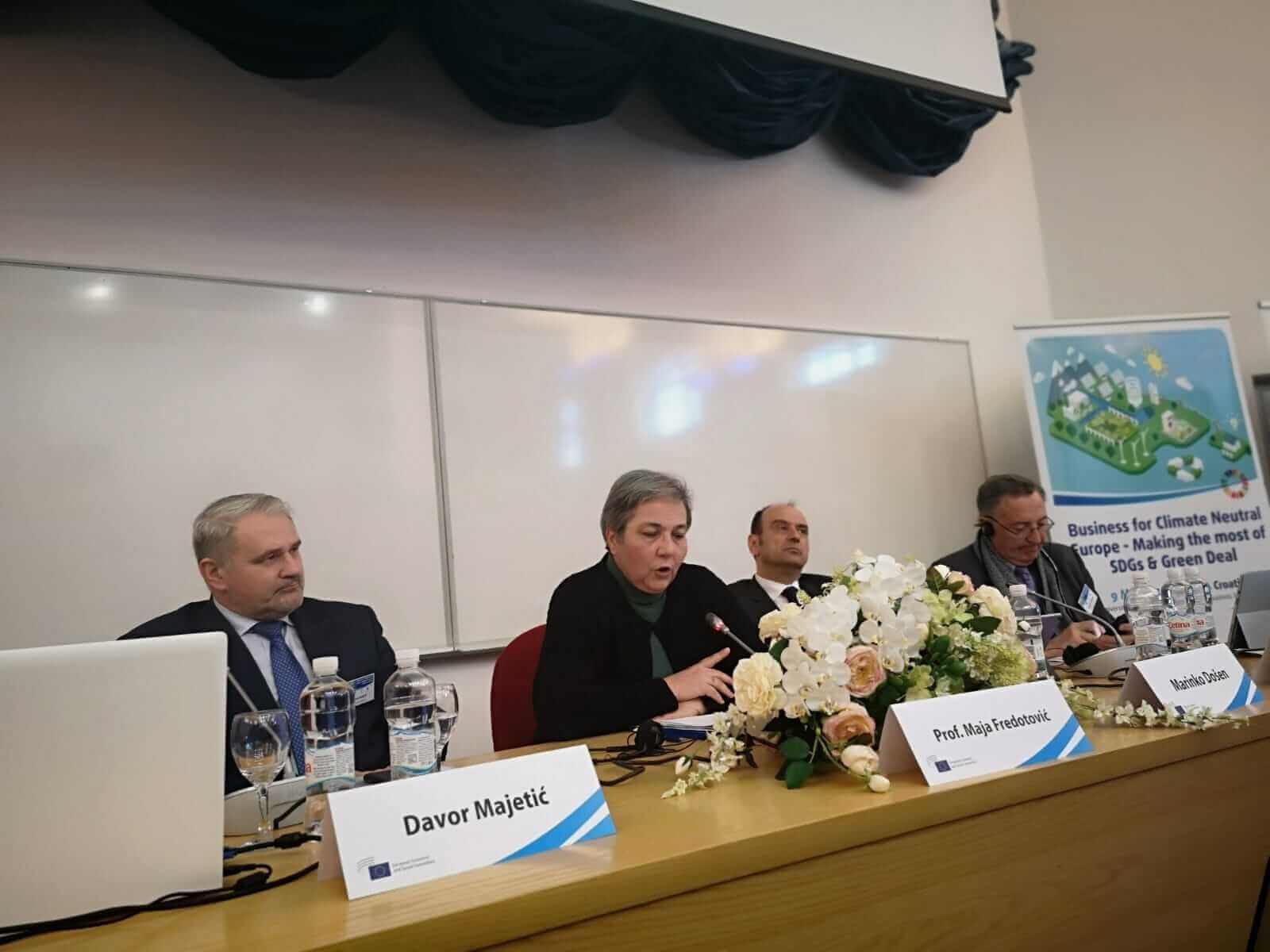How does the business sector integrate sustainability goals into its operations

The Faculty of Economics in Split held a conference Business Sector for Climate-neutral Europe – How to Meet the Ambition with the Sustainable Development Goals and the Green Plan. The conference was organized by the UN Global Compact Network Croatia, the Faculty of Economics in Split, the European Documentation Center, the Croatian Employers’ Association and the European Economic and Social Committee. Apart from delegation of the European Economic and Social Committee, representatives of the business sector, state institutions and civil society, as well as invited experts in the field of climate change and sustainable development also gathered, and Tomislav Ćorić, Minister of Environment and Energy, participated in the introductory part.
As part of the conference, a panel “How does the business sector integrate sustainability goals into its operations” was held, where Marinko Došen, President of the Management Board of AD Plastik Group, described the company’s position in the market. “In order to function in the automotive industry, we must be qualified. We can only be that if we meet certain standards. The automotive industry has trends and fashion. Three basic trends are represented: safety, vehicle weight reduction and environmental impact. Vehicle weight reduction has an impact on reducing consumption, and a lot of attention is paid to the impact of materials on the environment. We have been constantly investing in the development of materials and the use of the best available technology regarding the construction of our plants and the management of work processes. In terms of materials research and development, the trend is to work with materials with less weight and better properties. We have pilot plants where we perform testing and research. Thanks to this approach, we achieve targeted savings of between 15 and 20 percent compared to conventional materials. We have strategically decided to apply the best available technologies when investing over HRK 200 million in two state-of-the-art robotic painting lines. Taking care of the environmental aspect, we have also built a small plant for waste gas treatment that is generated in the production process. In this way, we have greatly contributed to reducing the negative impact on the environment. All those our activities are covered in an important part of our strategy related to corporate social responsibility,” said Marinko Došen.



